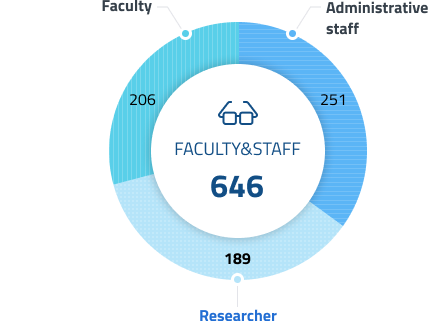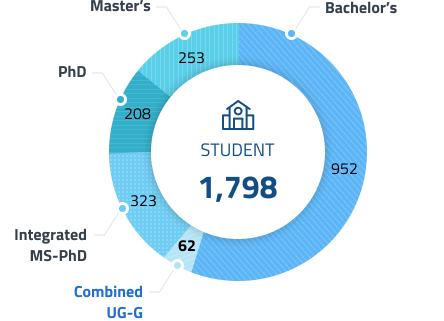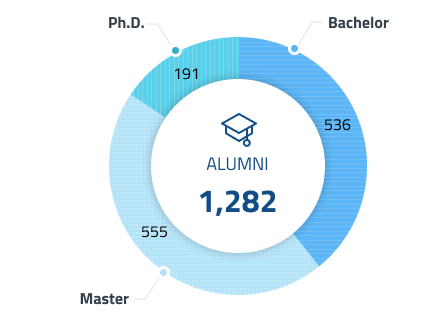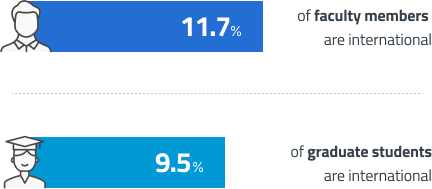Overview
01. DGIST at a Glance
As a science and engineering university established by Korean government, DGIST benefits society through the advancement of science and engineering.
DGIST, founded as a research institution in 2004, expanded its roles and responsibilities as a research-oriented university by opening its graduate program in 2011 and undergraduate program in 2014.
Under our aim of leading innovation and new discoveries, we conduct cutting-edge research to resolve the major challenges facing humanity, and educate talent to make the world a better place.
2004
Founded as a
Research Institute
2011
Opened Graduate School
(M.S.&Ph.D. programs)
2014
Opened
Undergraduate School
2016
Conferred its
first Ph.D. degrees
2018
Conferred its
first B.S. degrees
SCHOOLS & RESEARCH INSTITUTES
College of Transdisciplinary Studies
Singles School without Department- School of Undergraduate Studies
Graduate School
Graduate School- Department of Physics and Chemistry
- Department of Electrical Engineering and Computer Science
- Department of Robotics and Mechatronics Engineering
- Department of Energy Science and Engineering
- Department of Brain Sciences
- Department of New Biology
- Department of Interdisciplinary Studies
Affiliated Research Centers
- Korea Brain Research Institute
Convergence Research Institute
- ICT Research Institute
- Division of Electronics & Information System
- Division of Automotive Technology
- Division of Intelligent Robot
- Materials Research Institute
- Division of Energy Technology
- Division of Nanotechnology
- Division of Biotechnology
- Brain Engineering Convergence Research Center
- Magnetics Initiative Life Care Researdh Center
- Research Center for Extreme Exploitation of Dark Data
- DGIST-LBNL Research Center for Emerging Materials
- Research Center for Resilient Cyber Physical Systems
- DGIST-ETH Microrobotics Research Center
- Core Protein Resources Center
- Global Center for Bio-Convergence Spin System
- Convergence Research Center for Microlaser Technology
- Well Aging Research Center
- Center for Proteome Biophysics
- Research Center for Thin Film Solar Cells
- Convergence Research Advanced Center for Olfaction
- Digital Innovation Research Institute
- Institute of Next-generation Semiconductor Convergence Technology
- Center for Digital Productivity Innovation Cluster
- Sensorium Institute
FACT AND FIGURES
Members(as of January 2022)
Total 2,444


Alumni

International Members


